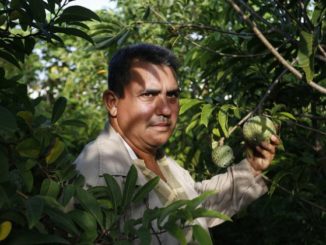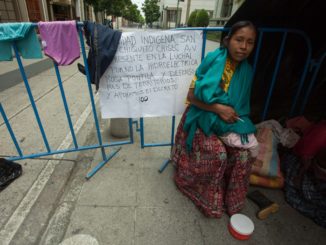
Conservation Agriculture Sprouts in Cuban Fields
At the entrance, the Tierra Brava farm looks like any other family farm in the rural municipality of Los Palacios, in the westernmost province of Cuba. But as you drive in, you see that the traditional furrows are not there, and that freshly cut grass covers the soil. “For more than five years we’ve been practicing conservation agriculture (CA),” said Onay Martínez, who works 22 hectares of state-owned land. He was referring to a specific kind of agroecology which, besides not using chemicals, diversifies species on farms and preserves the soil using plant coverage and no plowing.





